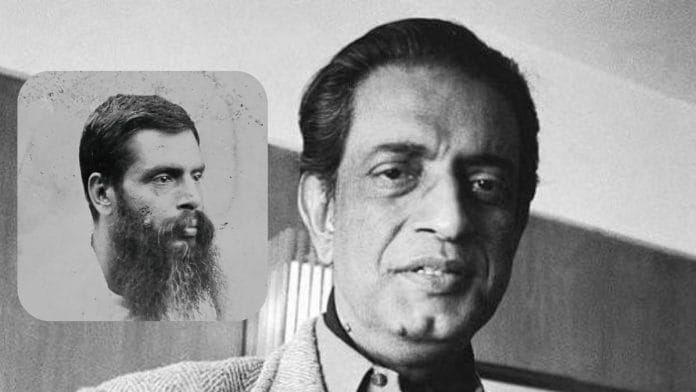New Delhi: India has asked Bangladesh to reconsider its decision to demolish the ancestral home of legendary filmmaker Satyajit Ray in Mymensingh, offering assistance to preserve the structure and convert it into a museum that would honour the shared cultural heritage of the two nations.
The statement followed local reports Tuesday that said that the ancestral house of Satyajit Ray’s grandfather, Upendrakishore Ray Chowdhury, was being demolished in Bangladesh.
In its statement, the Ministry of External Affairs expressed “profound regret” over these reports.
“Given the building’s landmark status, symbolising Bangla cultural renaissance, it would be preferable to reconsider the demolition and examine options for its repair and reconstruction as a museum of literature and a symbol of the shared culture of India and Bangladesh,” the ministry said.
“India would be willing to extend full cooperation toward preserving the structure as a museum of literature and shared cultural values,” the statement added.
The destruction of the Ray residence has drawn criticism from West Bengal Chief Minister Mamata Banerjee as well, who called the move “extremely distressing” and appealed to both the Indian and Bangladeshi governments to protect the legacy of the Ray family.
“This news is deeply distressing. The Ray family has been one of the foremost torchbearers of Bengali culture. Upendrakishore Ray Chowdhury stands as a towering figure of Bengal’s renaissance, and this house is inextricably linked to our cultural heritage,” Chief Minister Mamata Banerjee said in a post on X.
She also called upon the Muhammad Yunus-led government in Bangladesh, as well as all “conscientious” citizens of the country, to take immediate steps to preserve the historic home. Additionally, Banerjee urged the Indian government to actively intervene in the matter to help safeguard this invaluable piece of shared heritage.
The two-story home, located along Harikishore Ray Chowdhury Road in Mymensingh, had fallen into disrepair after years of neglect. Constructed over a century ago by Upendrakishore Ray Chowdhury, the property later served as the local Shishu Academy, a government-run center for children’s development. Activities at the academy reportedly stopped a decade ago when the building was deemed unsafe, with officials opting to rent a different space, according to local reports.
According to the Bangladesh Department of Archaeology, the house was constructed over a century ago. Following the 1947 Partition, the property came under the ownership of the government.
Despite appeals from historians, poets, and local residents, officials have proceeded with the demolition, citing structural concerns and safety risks to children.
However, local poets and activists argue the historical value of the building has been systematically overlooked. “The house remained in a sorry state for years, with cracks forming on its roof, yet the authorities never cared about the rich history these old buildings hold,” poet Shamim Ashraf, was quoted saying in The Daily Star.
The incident comes at a time when Bangladesh has seen a noticeable deterioration in law and order. India’s appeal follows mounting concern in India and Bangladesh over recent acts of violence and neglect targeting heritage sites linked to the region’s pluralist history.
Last month, a mob vandalised the ancestral home of Nobel laureate Rabindranath Tagore in Sirajganj, Bangladesh. New Delhi called the act part of a “broad pattern” of assaults on the country’s syncretic cultural identity.
“The violent act is a disgrace to the memory and the inclusive philosophy and teachings that the Nobel Laureate espoused in Bangladesh,” Randhir Jaiswal, Spokesperson of the Ministry of External Affairs, had said.
(Edited by Zinnia Ray Chaudhuri)






